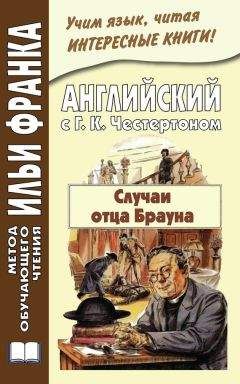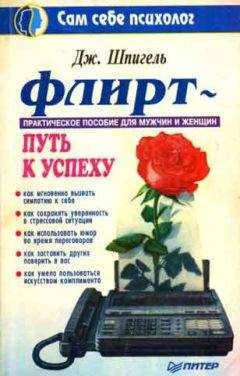Гилберт Честертон - Английский с Г. К. Честертоном. Рассказы об отце Брауне / Gilbert Keith Chesterton. The Innocence of Father Brown
They had passed many hundreds of grey and ghostly trees before the little priest answered. Then he bit his finger reflectively and said: “Why, the mystery is a mystery of psychology. Or, rather, it is a mystery of two psychologies. In that Brazilian business two of the most famous men of modern history acted flat against their characters. Mind you, Olivier and St. Clare were both heroes – the old thing, and no mistake; it was like the fight between Hector and Achilles. Now, what would you say to an affair in which Achilles was timid and Hector was treacherous?”
“Go on (продолжайте),” said the large man impatiently as the other bit his finger again (нетерпеливо сказал большой человек, когда другой снова начал покусывать свой палец).
“Sir Arthur St. Clare was a soldier of the old religious type – the type that saved us during the Mutiny (сэр Артур Сент-Клэр был солдатом старого религиозного склада, одним из тех, кто спас нас во время Больного бунта[9]),” continued Brown (продолжил /отец/ Браун). “He was always more for duty than for dash (для него всегда важнее был долг, а не безрассудство; duty – долг, обязательство; dash – рывок; сокрушительный удар; энергия, напористость; отвага, безрассудство); and with all his personal courage was decidedly a prudent commander, particularly indignant at any needless waste of soldiers (при всем своем личном мужестве он был, бесспорно, осторожным командующим и особенно негодовал, /узнавая/ о бесполезных потерях солдат; indignant – негодующий, возмущённый; waste – растрата; излишняя или ненужная трата; потеря). Yet in this last battle he attempted something that a baby could see was absurd (однако в этой последней битве он предпринял действия: «нечто», которые и для ребенка показались бы нелепыми; absurd – нелепый, абсурдный; смешной, глупый; несообразный; бестолковый). One need not be a strategist to see it was as wild as wind (не надо быть стратегом, чтобы понять всю бестолковость его затеи: «что это было так же дико, как ветер»); just as one need not be a strategist to keep out of the way of a motor-bus (как не надо быть стратегом, чтобы не попасть под автобус). Well, that is the first mystery; what had become of the English general’s head (итак, это первая тайна: что случилось с умственными способностями английского генерала; to become – становиться; делаться; head – голова; ум, интеллект, умственные способности)?
“Go on,” said the large man impatiently as the other bit his finger again.
“Sir Arthur St. Clare was a soldier of the old religious type – the type that saved us during the Mutiny,” continued Brown. “He was always more for duty than for dash; and with all his personal courage was decidedly a prudent commander, particularly indignant at any needless waste of soldiers. Yet in this last battle he attempted something that a baby could see was absurd. One need not be a strategist to see it was as wild as wind; just as one need not be a strategist to keep out of the way of a motor-bus. Well, that is the first mystery; what had become of the English general’s head?
The second riddle is, what had become of the Brazilian general’s heart (вторая загадка: что случилось с сердцем бразильского генерала)? President Olivier might be called a visionary or a nuisance (президента Оливье можно называть фантазером или занудой; visionary – прорицатель; мечтатель; выдумщик, фантазер; nuisance – досада; неприятность; надоедливый человек; зануда); but even his enemies admitted that he was magnanimous to the point of knight errantry (но даже его враги признавали, что он был великодушен, как странствующий рыцарь: «до такой же степени как странствующий рыцарь»; magnanimous – великодушный, благородный; point – точка; knight – рыцарь; errantry – путешествия, странствия /в поисках приключений/). Almost every other prisoner he had ever captured had been set free or even loaded with benefits (почти всех, кто попадал к нему в плен, он отпускал на свободу: «были выпущены на свободу» или даже помогал: «нагружал милостями»; every other – все остальные; каждый второй; benefit – выгода; польза; прибыль; доброе дело; милость). Men who had really wronged him came away touched by his simplicity and sweetness (люди, которые причинили ему зло, уходили, тронутые его простотой и добродушием; to wrong – вредить; причинять зло; simple – простой). Why the deuce should he diabolically revenge himself only once in his life (зачем же, о черт возьми, понадобилось ему впервые в жизни так жестоко мстить; deuce – черт, дьявол, бес /в проклятиях, ругательствах/; diabolically – жестоко, грубо, зло; revenge – месть, мщение, отмщение); and that for the one particular blow that could not have hurt him (да еще /мстить/ за отдельное нападение: «удар», которое не могло его задеть; to hurt – причинить боль; ранить; задевать)? Well, there you have it (вот так: «тут ты имеешь это = вот такая история»). One of the wisest men in the world acted like an idiot for no reason (один из самых умных людей на свете без всякого повода поступил как идиот; wise – мудрый; reason – причина; повод; основание). One of the best men in the world acted like a fiend for no reason (один из самых благородных: «лучших» людей на свете без всякого повода поступил как злодей; fiend – дьявол; демон; злодей, изверг). That’s the long and the short of it (вот так; the long and the short of it – одним словом; короче говоря: «длинное и короткое этого = хоть долго рассуждай, хоть коротко»); and I leave it to you, my boy (предоставляю это вам, дружище).”
The second riddle is, what had become of the Brazilian general’s heart? President Olivier might be called a visionary or a nuisance; but even his enemies admitted that he was magnanimous to the point of knight errantry. Almost every other prisoner he had ever captured had been set free or even loaded with benefits. Men who had really wronged him came away touched by his simplicity and sweetness. Why the deuce should he diabolically revenge himself only once in his life; and that for the one particular blow that could not have hurt him? Well, there you have it. One of the wisest men in the world acted like an idiot for no reason. One of the best men in the world acted like a fiend for no reason. That’s the long and the short of it; and I leave it to you, my boy.”
“No, you don’t (нет уж),” said the other with a snort (сказал его собеседник: «второй», фыркнув; snort – фырканье). “I leave it to you (я предоставляю это вам; to leave – оставлять; покидать; предоставлять; поручать); and you jolly well tell me all about it (это вам придется мне рассказать обо всем этом; jolly well – конечно; непременно; придется /сделать/).”
“Well,” resumed Father Brown (продолжил отец Браун), “it’s not fair to say that the public impression is just what I’ve said, without adding that two things have happened since (было бы несправедливо утверждать, будто бы мнение общественности сводится к тому, что я рассказал, и не добавить, что с тех пор произошли два события; fair – красивый; светлый; справедливый). I can’t say they threw a new light (я не могу сказать, что они представили это дело в другом свете; to throw a new light – представить в ином свете: «бросить иной свет»); for nobody can make sense of them (поскольку никто не может понять их смысл; to make sense of smth. – понять смысл чего-л., разобраться в чем-л.). But they threw a new kind of darkness (они еще больше все усложнили: «добавили непонятного»; darkness – темнота; мрак; тайна; неясность; непонятность); they threw the darkness in new directions (обнаружились новые непонятные обстоятельства: «они направили непонятное по новым направлениям»; direction – направление; область). The first was this (первое было таким). The family physician of the St. Clares quarrelled with that family (семейный врач Сент-Клэров поссорился с этой семьей), and began publishing a violent series of articles (и начал публиковать целую серию резких статей; to begin), in which he said that the late general was a religious maniac (в которых он утверждает, что покойный генерал был религиозным маньяком); but as far as the tale went, this seemed to mean little more than a religious man (впрочем, как выяснилось, это означало лишь, что он был чрезмерно религиозным человеком; tale – рассказ; сказка; to mean – значить; означать). Anyhow, the story fizzled out (как бы то ни было, эта история кончилась ничем; to fizzle out – потерпеть неудачу, провалиться). Everyone knew, of course, that St. Clare had some of the eccentricities of puritan piety (конечно, все и так знали, что Сент-Клэр был эксцентричен в своей пуританской набожности; piety – благочестие, набожность).
“No, you don’t,” said the other with a snort. “I leave it to you; and you jolly well tell me all about it.”
“Well,” resumed Father Brown, “it’s not fair to say that the public impression is just what I’ve said, without adding that two things have happened since. I can’t say they threw a new light; for nobody can make sense of them. But they threw a new kind of darkness; they threw the darkness in new directions. The first was this. The family physician of the St. Clares quarrelled with that family, and began publishing a violent series of articles, in which he said that the late general was a religious maniac; but as far as the tale went, this seemed to mean little more than a religious man. Anyhow, the story fizzled out. Everyone knew, of course, that St. Clare had some of the eccentricities of puritan piety.
The second incident was much more arresting (второе событие было намного более поразительным; arresting – приковывающий внимание; захватывающий; поразительный). In the luckless and unsupported regiment which made that rash attempt at the Black River there was a certain Captain Keith (в злополучном полку, который не получил поддержки при безрассудной атаке у Черной речки, служил некий капитан Кит; luckless – несчастливый; злополучный; luck – фортуна; судьба; удача; to support – поддерживать, помогать; rash – поспешный; опрометчивый, безрассудный; attempt – попытка; certain – точный; определенный; некий), who was at that time engaged to St. Clare’s daughter, and who afterwards married her (который в то время был помолвлен с дочерью генерала и впоследствии на ней женился; to be engaged – быть помолвленным; afterwards – впоследствии; to marry – жениться; выходить замуж; вступать в брак). He was one of those who were captured by Olivier (он был одним из тех, кто был захвачен в плен к Оливье; to capture – захватывать, брать силой; брать в плен), and, like all the rest except the general, appears to have been bounteously treated and promptly set free (и как и со всеми остальными, кроме генерала, с ним, по всей вероятности, обошлись великодушно и быстро отпустили на свободу; bounteously – обильно; щедро; bounty – щедрость; to treat – обращаться; обходиться; to set free – освободить; выпустить на свободу; freedom – свобода). Some twenty years afterwards this man, then Lieutenant-Colonel Keith, published a sort of autobiography called ‘A British Officer in Burmah and Brazil’ (примерно двадцать лет спустя этот человек – теперь уже подполковник Кит – опубликовал нечто вроде автобиографии под названием «Британский офицер в Бирме и Бразилии»). In the place where the reader looks eagerly for some account of the mystery of St. Clare’s disaster may be found the following words (в том месте /книги/, где читатель жадно ищет информацию о причине: «тайне» поражения Сент-Клэра, можно найти следующие слова; account – счет; отчет; рассказ; оценка; основание, причина; to find): ‘Everywhere else in this book I have narrated things exactly as they occurred («Везде в своей книге я описывал события именно так, как они происходили; to narrate – повествовать, рассказывать; to occur – происходить, случаться), holding as I do the old-fashioned opinion that the glory of England is old enough to take care of itself (придерживаясь старомодного взгляда, что слава Англии настолько старинная, что может сама за себя постоять: «может сама о себе позаботиться»; to hold – держать; обнимать; поддерживать; old-fashioned – старомодный, несовременный; устаревший; fashion – мода, стиль; opinion – взгляд, мнение, убеждение; in my opinion – по моему мнению; to take care of – заботиться о).




